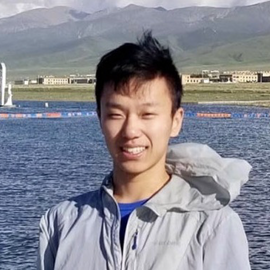Abstract
Quantum neural networks (QNNs) have become a leading paradigm for establishing near-term quantum applications in recent years. The trainability issue of QNNs has garnered extensive attention, spurring demand for a comprehensive analysis of QNNs in order to identify viable solutions. In this work, we propose a perspective that characterizes the trainability of QNNs based on their locality. We prove that the entire variation range of the loss function via adjusting any local quantum gate vanishes exponentially in the number of qubits with a high probability for a broad class of QNNs. This result reveals extra harsh constraints independent of gradients and unifies the restrictions on gradient-based and gradient-free optimizations naturally. We showcase the validity of our results with numerical simulations of representative models and examples. Our findings, as a fundamental property of random quantum circuits, deepen the understanding of the role of locality in QNNs and serve as a guideline for assessing the effectiveness of diverse training strategies for quantum neural networks.
Publication
Proceedings of the AAAI Conference on Artificial Intelligence

PhD Student (2023)
I obtained my BS in Applied Mathematics from China Agricultural University under the supervision of Prof. Zhencai Shen. I obtained my MS degree in Cyberspace Security from University of Chinese Academy of Sciences under the supervision of Prof. Zhenyu Huang. My research interests include quantum information theory and quantum computation.

Associate Professor
Prof. Xin Wang founded the QuAIR lab at HKUST(Guangzhou) in June 2023. His research primarily focuses on better understanding the limits of information processing with quantum systems and the power of quantum artificial intelligence. Prior to establishing the QuAIR lab, Prof. Wang was a Staff Researcher at the Institute for Quantum Computing at Baidu Research, where he concentrated on quantum computing research and the development of the Baidu Quantum Platform. Notably, he spearheaded the development of Paddle Quantum, a Python library designed for quantum machine learning. From 2018 to 2019, Prof. Wang held the position of Hartree Postdoctoral Fellow at the Joint Center for Quantum Information and Computer Science (QuICS) at the University of Maryland, College Park. He earned his doctorate in quantum information from the University of Technology Sydney in 2018, under the guidance of Prof. Runyao Duan and Prof. Andreas Winter. In 2014, Prof. Wang obtained his B.S. in mathematics (with Wu Yuzhang Honor) from Sichuan University.
 Training limitations from QNN locality.
Training limitations from QNN locality.